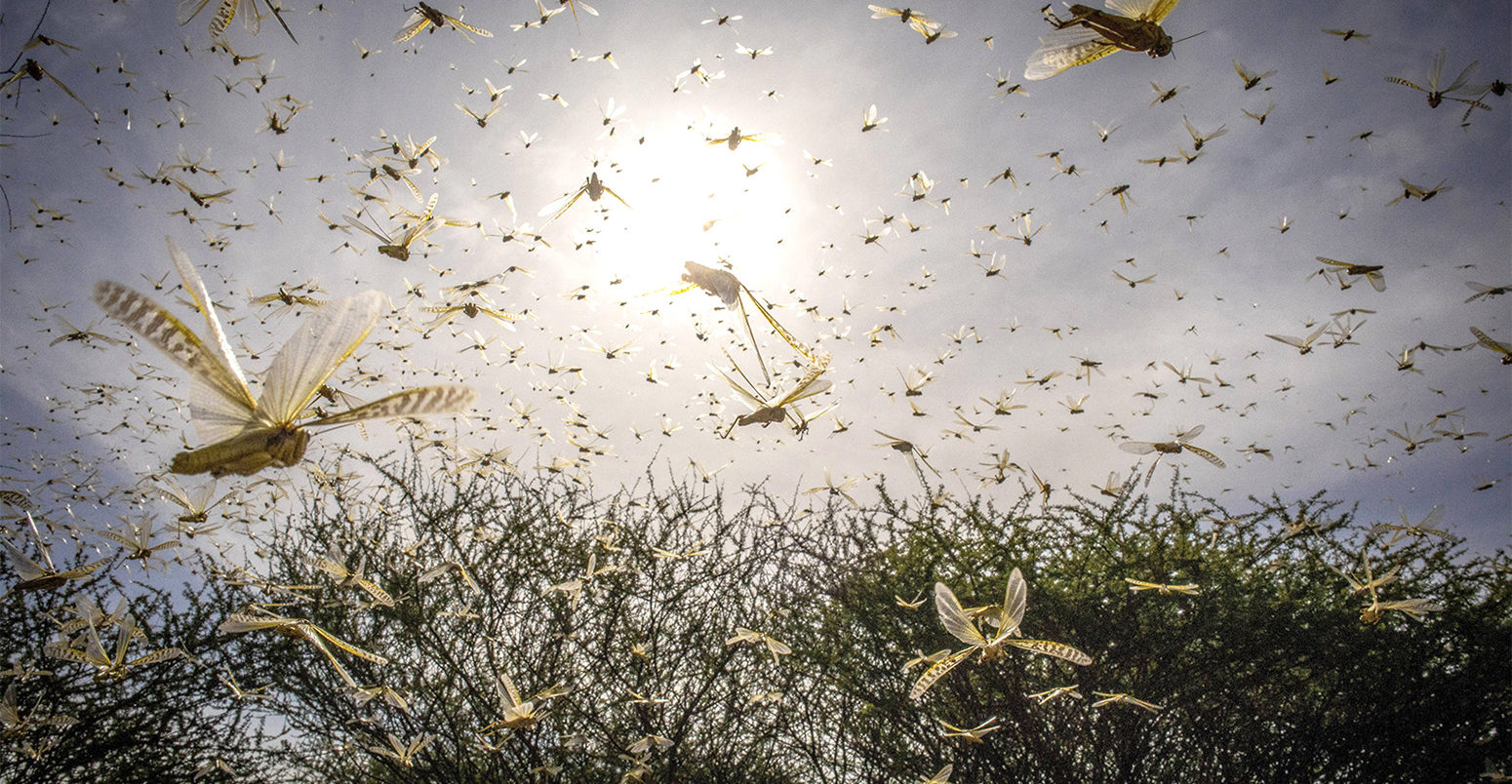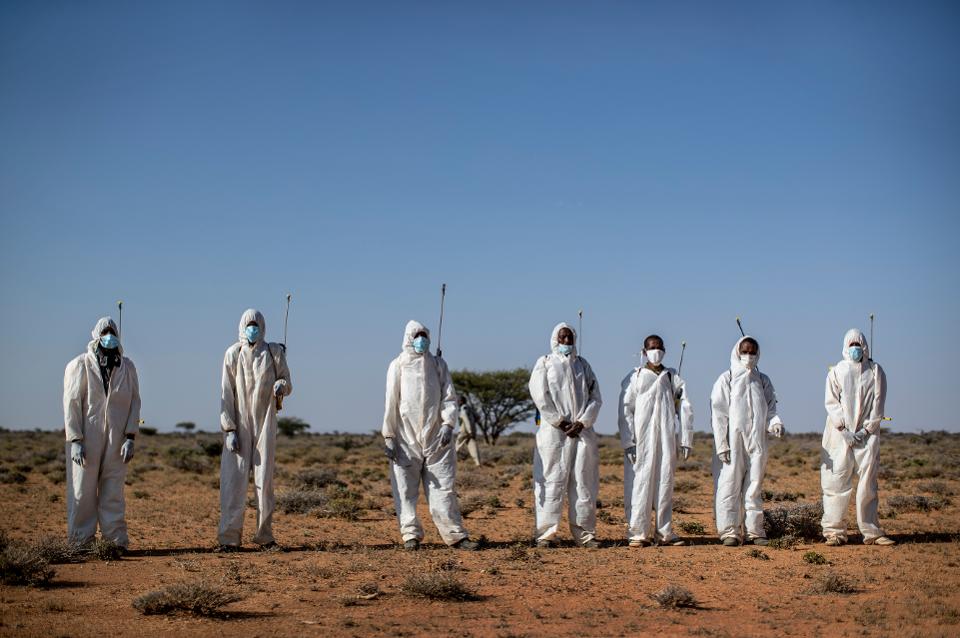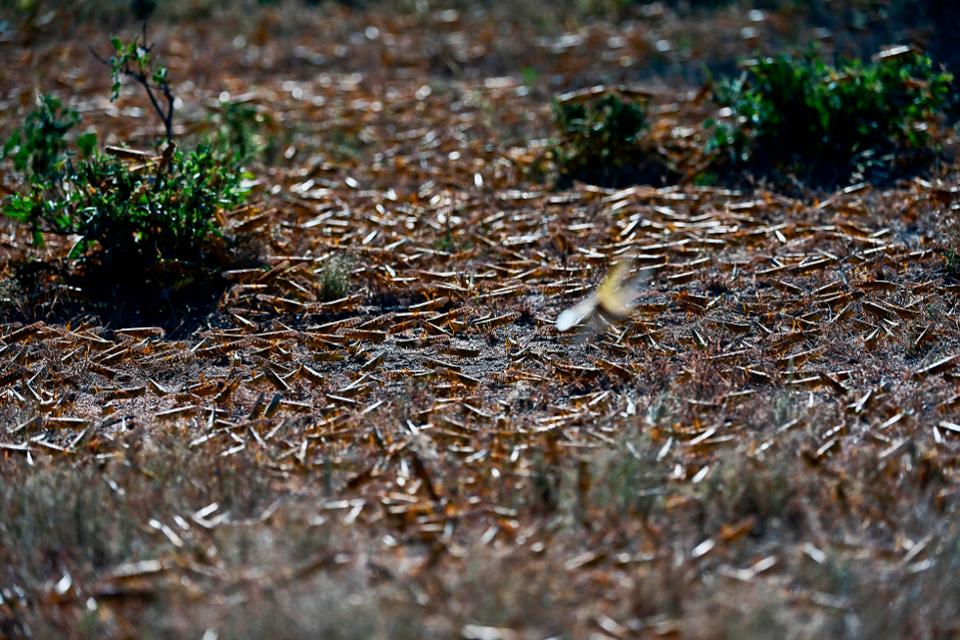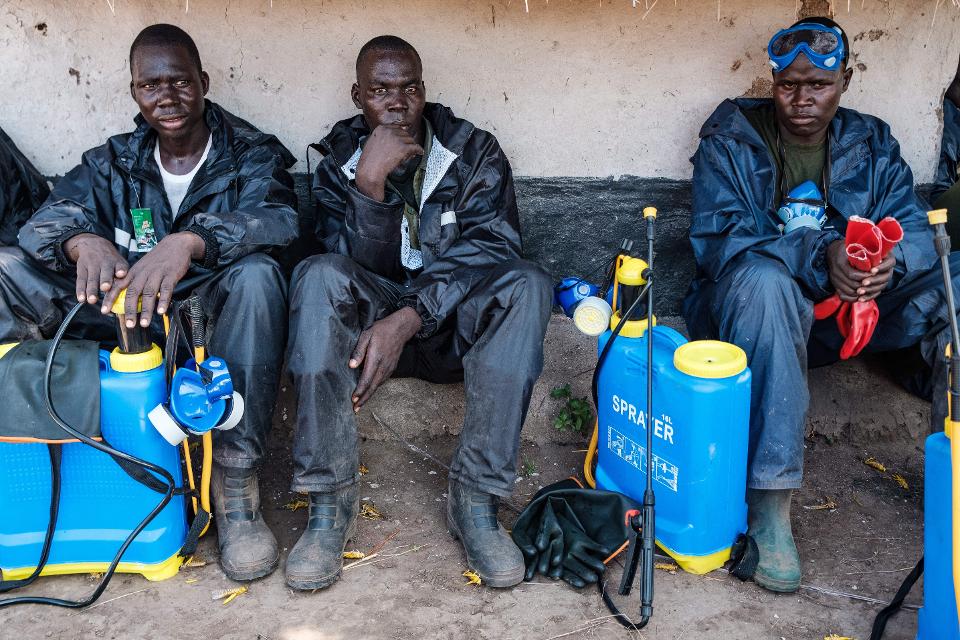
East Africa is bracing itself for a second wave of locusts in what it anticipates to be the worst outbreak seen since 1950. Billions of insects are expected to swarm the already threatened food sources exacerbated by the pandemic.
The approaching locust attack might be 20 times larger than the initial attack, AP reports. The billions of winged creatures are moving in from Somalia, searching for seasonal vegetation and can decimate enough food for 35,000 people in a single day.
East Africa, with a population of around 20 million people, is already struggling with food supply, but with more desert locusts breeding in northern Somalia, this second wave will not be the last. The arid parts of Somalia running south of this land are under al-Qaida linked extremist groups, making it impossible to aerial spray the locusts in what is the only means of effective control.

The coronavirus pandemic comes second to East Africa’s food and locust problems. According to UN’s humanitarian chief Mark Lowcock, Somalia has declared a national emergency over the locust outbreak, having the potential “to be the most devastating plague of locusts in any of our living memories if we don’t reduce the problem faster than we’re doing at the moment.”
But planes carrying pesticide can only do so much. Spraying in neighbouring Kenya and Ethiopia, using a handful of planes, is barely keeping the new locusts from developing.

“The world needs to know this is where it all begins,” said Alberto Trillo Barca, a spokesman for the UN Food and Agriculture Organization. “In the next three or four weeks, these nymphs, as we call them, will develop wings.”
CORONAVIRUS COMES IN FAR SECOND TO LOCUST THREAT BUT PREVENTS LOCALS FROM FIGHTING THEM
The biblical swarms of locusts are what “everyone is talking about,” said Yoweri Aboket, a farmer in Uganda. “Once they land in your garden, they do total destruction. Some people will even tell you that the locusts are more destructive than the coronavirus. There are even some who don’t believe that the virus will reach here.”
But because of a virus that first started in another world, Wuhan, China, and was concealed by the CCP for 6 weeks, villagers near the Kenyan border are barred from gathering outside their homes to combat the locusts.

Failed gardens, a local staple, now means hunger. As farmers watch in frustration, livelihoods and food security are lost to the swarms under new Draconian lockdowns. Djibouti, Tanzania, Eritrea and the Congo have also sighted the locust swarms.
The UN Food and Agriculture Organization says the “current situation in East Africa remains extremely alarming,” according to one new assessment. The months May through to July might also bring in more favourable breeding conditions and will coincide with harvest season.

With other world news struggling to surface through the coronavirus hype, people are forgetting that larger problems can and do exist in some parts of the world.
“I think, unfortunately, because of other things going on around the world, people are forgetting about the problem with the locusts. But it’s a very, very real problem,” farmer George Dodds told the FAO.

Uganda’s agricultural minister is unable to source enough pesticides from Japan because of shipping disruptions to international shipments. Other nations face similar issues and are exacerbated by the concern to raise enough revenue to save the wealthier populations from economic disruption.
In Ethiopia, over 6 million people will suffer in the locust outbreak if it remains unchecked. Other countries like Kenya and Somalia will also suffer similarly.
Ethiopia’s agricultural minister gave a dire warning that the locust swarms are now appearing in locations where they have previously not been sighted.





